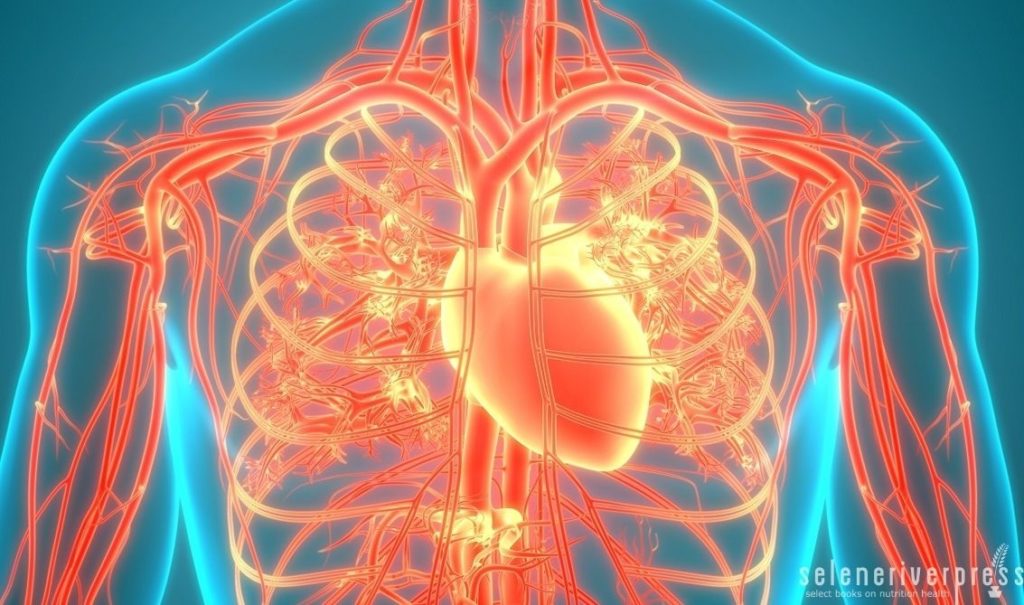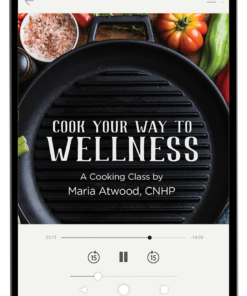We all know, at least in a broad sense, the general meaning of the words circulatory system. But my understanding of it has recently been enhanced after a very knowledgeable person, Mark R. Anderson (president of Standard Process West), explained to me that supporting the circulatory system is a critical step to take when addressing glaucoma. Without healthy circulation, the body can’t deliver the nutrients needed by the eyes.
As a certified health professional, I’ve had the privilege of learning a great deal from Mark. It’s clear if you listen to his seminars that he is beyond the understanding of most doctors when it comes to the functions of the human body and what to do when it misbehaves. After learning about the relationship between glaucoma and the circulatory system, I wanted to deepen my understanding of the basics and pass that information onto my readers, especially those who may have glaucoma.
A Rudimentary Definition of the Circulatory System
The website Sciencing explains (emphasis mine): “The human circulatory or cardiovascular system distributes substances necessary for life throughout the body. Starting at the heart, blood is pumped to the lungs where it picks up oxygen and releases carbon dioxide. Other blood fluids pick up nutrients from the digestive system, get cleansed in the kidneys and liver or receive hormones from the various glands scattered around the body.”
How Are Substances Carried Throughout the Human Body?
This was the first question that popped into my head when I read the Sciencing article I quote above, as I was naturally anxious to correct any existing problems in my circulatory system and support the circulatory area of my eyes.
The components associated with the circulatory system are the arteries, veins, and capillaries, all of which are defined below. According to the website Visible Body, these three entities “make for a vast network of pipes. If you were to lay out all the blood vessels of the body in a line, they would stretch for nearly 60,000 miles. That’s enough to circle the earth almost three times!”
The Three Highways of the Circulatory System
Let’s now get a basic definition of each of these from Merriam-Webster. (Also feel free to read the article quoted above for a more extensive explanation.)
Veins: “any of the tubular branching vessels that carry blood from the capillaries toward the heart.”
Capillaries: “any of the smallest blood vessels connecting arterioles with venules and forming networks throughout the body.”
Arteries: “any of the tubular branching muscular- and elastic-walled vessels that carry blood from the heart through the body.”
The Substance that Supposedly Harms the Circulatory System
Let me begin with the big myth that cholesterol is an artery-clogging substance. I urge you to read the extensive research presented by Judith DeCava in her book Cholesterol: Facts and Fantasies, but here is a brief list she presents:
Facts
- Cholesterol is essential to the proper functioning of every cell in the body.
- Cholesterol is our raw material for healing, brain function, recall, athletic performance, mineral balance, libido, muscle mass, our immune system, fetal development, and so many other things.
- Cholesterol deficiency can result in fatigue, obesity, emotional disturbance, digestive distress, impotence, menstrual symptoms, fluid imbalance, and nutritional deficit.
- High cholesterol in and of itself is not an accurate predictor of heart disease.
- The cholesterol myth has made pharmaceutical companies rich, but bestselling statins have not turned out to be a panacea for heart disease.
Fantasies
- Lowering our cholesterol is always beneficial.
- Cholesterol is the primary cause of heart disease.
- Dietary cholesterol is downright dangerous. A traditional breakfast of bacon and eggs is a “heart attack on a plate.”
- Statins are a silver bullet.
- The problem of heart disease can be eradicated with nothing more than a prescription pad.
What does cholesterol actually do? The article “Myths and Truths About Cholesterol” is just one of many you can find that debunks the fact that cholesterol is the main heart and circulatory system bogeyman! I recommend the article in full, but the following gives you a good idea of why cholesterol is so important:
The Many Vital Roles of Cholesterol
- Cholesterol is produced by almost every cell in the body.
- Cholesterol in cell membranes makes cells waterproof so there can be a different chemistry on the inside and the outside of the cell.
- Cholesterol is nature’s repair substance, used to repair wounds, including tears and irritations in the arteries.
- Many important hormones are made of cholesterol, including hormones that regulate mineral metabolism and blood sugar, hormones that help us deal with stress, and all the sex hormones, such as testosterone, estrogen and progesterone.
- Cholesterol is vital to the function of the brain and nervous system.
- Cholesterol protects us against depression; it plays a role in the utilization of serotonin, the body’s “feel-good” chemical.
- The bile salts, needed for the digestion of fats, are made from cholesterol.
- Cholesterol is the precursor of vitamin D, which is formed by the action of ultra-violet (UV-B) light on cholesterol in the skin.
- Cholesterol is a powerful antioxidant that protects us against free radicals and therefore against cancer.
- Cholesterol, especially LDL-cholesterol (the so-called bad cholesterol), helps fight infection.
How to Avoid Heart Disease
- Don’t worry about your cholesterol—the stress of unnecessary worry can contribute to heart disease.
- Do not take cholesterol-lowering drugs—they contribute to heart failure.
- Avoid processed food, especially foods containing processed vegetable oils and trans fats.
- Eat the meat, fat and organ meats of grass-fed animals.
- Eat plenty of wild-caught seafood.
- Do not consume protein powders, lean meat, egg whites without the yolks or skim milk. High-protein diets lacking the nutrients supplied by animal fats can deplete vitamin A, leading to heart disease.
- Eat liver at least once a week to ensure adequate levels of vitamin B12, vitamin B6, folic acid, iron and copper.
- Take cod liver oil and consume plenty of butter from grass-fed cows to ensure adequate levels of vitamins A, D and K.
- Maintain a healthy weight—neither too heavy nor too thin.
- Engage in moderate exercise outdoors.
- Do not smoke; avoid exposure to environmental toxins
Suggestions for Maintaining a Healthy Circulatory System
I recently happened upon an important article in the SRP Historical Achieves on the use of calcium therapy as a great benefit for addressing both heart issues and circulatory weakness, which I quote from below.
However, I must point out that the calcium referenced in the article is not the same as the calcium you would purchase in your local vitamin store. The proper form of calcium can be obtained from the supplements listed below or from foods high in calcium. I urge you to take the time to read this article in full.
From the SRP Historical Archives, “Calcium Therapy in Diseases of the Cardiovascular System,” by Edward Podolsky, MD (emphasis mine):
“Calcium exerts a remarkable influence on the patients with congestive heart failure, according to Steward. In a series of six cases, he observed an increase in the output of urine following oral administration of calcium. The heart rhythm and contractions were also improved. Engelin found that calcium proved of benefit for all forms of circulatory weakness manifesting as general fatigue and high excitability of the heart—all of which are more or less connected with vasomotor hyperirritability.”
Standard Process Supplements that Support the Circulatory System
- Soybean Lecithin: This product does not contain soy. Rather, only the lecithin from the soy is used to clean out accumulated debris in the circulatory system.

- Niacinamide B6: Aids in the breakdown of proteins, fats, and carbohydrates. Source of vasodilation for increasing circulation.
- Cyruta Plus: Supports capillary integrity and function.
- Calcium Lactate: Contains both calcium and magnesium in the proper proportions.
- A-C Carbamide: A supplement for glaucoma and edema; helps water retention.
- Ginkgo Forte: Contains ginkgo leaf to support memory, cognition, and circulatory support for healthy mental aging.
- Zinc Chelate: Used for optic nerve damage, healing the prostrate, and insulin production.
- Cataplex B-Core: Nerve support; contains naturally occurring phytonutrients and B vitamins, including thiamine and folate derived from the whole food matrix.
Please see a Standard Process practitioner to tailor supplements and dosages appropriate to your needs. Do not purchase Standard Process products online. There is no guarantee that they have been kept in a proper environment or that they have not expired, which may invalidate their strength.
In closing, it is my hope that you now have a basic understanding of your circulatory system. It is often overlooked, yet it is one of the major reasons we stay healthy and avoid heart and blood issues. Thank you passing this post on to anyone who may benefit from it.
[xyz-ihs snippet=”Begin-Authors-Note”]Afterthoughts from the Traditional Cook
Here’s my story,
Circulatory!
Cardiovascular system!
Consists of veins and arteries,
For blood flow,
You can’t miss ’em…
Surely, I am circulatory,
Pumping round and round,
Beating heart and blood vessels,
I surely will astound…
Brought by “blue” veins,
To the heart,
To lungs is where blood’s pumped…
Oxygenated by those lungs,
This system can’t be trumped!
Blood from lungs,
Returns to heart,
And then to artery,
Which carry blood to every organ,
In every part-a-me!
Surely, I am circulatory,
Pumping round and round,
With my heart,
And blood vessels,
I surely will astound!
—“Circulatory System Poem”
Disclaimer from Maria Atwood, CNHP: I am a Certified Natural Health Professional (CNHP) not a medical doctor. I do not diagnose, prescribe for, treat, or claim to prevent, mitigate, or cure any human diseases. Please see your medical doctor or health practitioner prior to following any recommendations I make in my blog posts or on my website.
Images from iStock/magicmine (main), SciePro(artery), bit245 (zinc foods), Yulia Gusterina (variety of foods).






